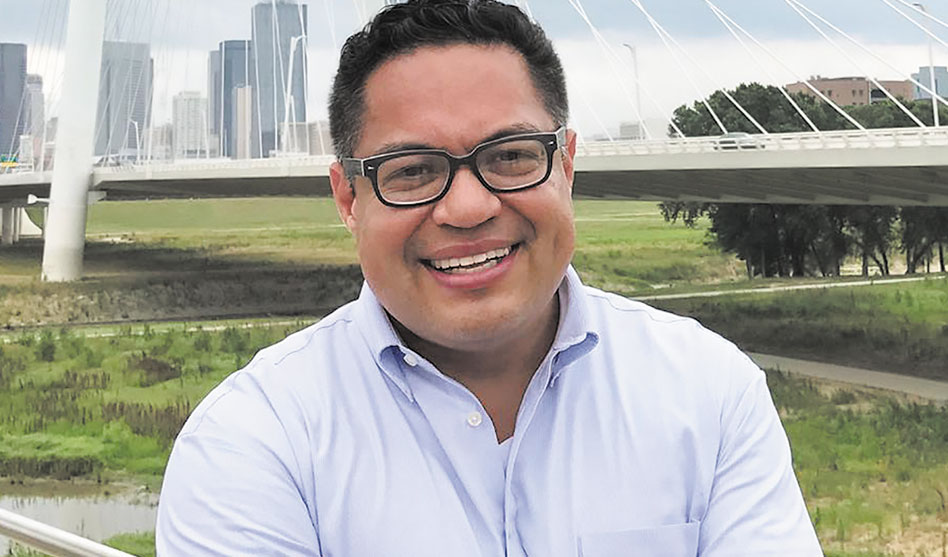Omar Narvaez
Sexually-oriented businesses will be required to close from 2-6 a.m. in the city
DAVID TAFFET | Senior Staff Writer
taffet@dallasvoice.com
Bringing Dallas’ sexually-oriented business ordinance into compliance with state law has opened the discussion at Dallas City Hall over the entire ordinance, and councilmembers voted Wednesday, Jan. 26, to limit what hours such businesses can stay open.
Employees of sexually-oriented businesses — mostly straight strip clubs and bookstores — must be 21 years old under Texas state law. But Dallas Police Chief Eddie Garcia has been pushing to have these businesses close between 2 a.m. and 6 a.m. That’s when most crime takes place at these businesses, Garcia said, and these businesses account for a large portion of police calls during those hours.
Fort Worth, Grand Prairie and Plano all restrict the hours of SOBs in their jurisdictions. Plano is the most restrictive, forcing sexually-oriented businesses to close from 2 a.m. until 10 a.m.
Around the state, San Antonio and El Paso also have required closing hours, while Austin and Houston have no restrictions on hours such businesses can stay open.
The owners and managers of these sexually-oriented businesses argue that criminal incidents don’t take place in the clubs themselves. And they’re right: Most of the fights, hold-ups and other activity takes place in the parking lots and on nearby property. But some of those nearby properties are pawnshops, motels and gas stations that club owners say are the problem, not them.
Although the new ordinance was introduced by District 7 City Councilman Adam Bazaldua, because he chairs the Quality of Life, Arts and Culture Committee, most of the city’s SOBs are within Councilman Omar Narvaez’s District 6 in northwest Dallas.
Narvaez has been cautious about the ordinance and has said he worries about the businesses and the people they employ in his district. He doesn’t want this to be a morals issue.
Chief Garcia has been clear on that front. This isn’t a morals issue to him, either. He has said he’s strictly looking at the number of police calls to these properties at those hours and that the number of calls to these businesses takes up a large portion of police and fire resources during those hours, thus decreasing response time for other calls.
His goal, Garcia said, is to reduce violent crime.
Gay bars are not considered sexually-oriented businesses. The clubs affected by the ordinance are generally known as gentlemen’s clubs. But Oak Lawn bar owners worry that, although they’re not included in the category of SOB today, they could be included eventually, or that there could be a push to include them. But other than after-hours events at a few bars, LGBTQ bars already close at 2 a.m.
At the full City Council meeting this week, Narvaez said he’s never seen an issue get so political. He apologized to the employees of the businesses affected for not doing enough to support them.
Narvaez said he would work with those who will lose their jobs because of the reduced hours — who are mostly women — to help them find rental assistance, job assistance and other available programs.
Narvaez ended his remarks from the horseshoe saying the ordinance was rushed through and he’s not happy with it, but he’d vote for it.
Mayor Pro Tem Chad West read a letter from Dallas College Trustee Diana Flores offering job training programs at the school. He agreed with Narvaez that the ordinance was rushed.
West suggested an appeal process for businesses that have not had a crime problem. Garcia disagreed, saying the businesses should be closed to avoid any potential problems.
Despite objections from the police chief, West made a motion to create an appeal process for businesses that meet a crime standard comparable to other businesses open 24 hours (such as a Whataburger).
The motion failed, with only three council members voting for it including West and Narvaez.
Narvaez offered a motion that the ordinance be reviewed every two years. That motion passed with 10 out of 15 votes.
The ordinance itself passed with all 15 votes.
Under the new ordinance, employees of businesses licensed as SOBs would have to be 21 years old. Any business that violates the new closing hours would have its license suspended for up to 30 days. Any business that operates during the suspension could lose its license to operate in Dallas.
In addition, anyone violating the new rules could be fined $4,000 and could be jailed for up to a year.


